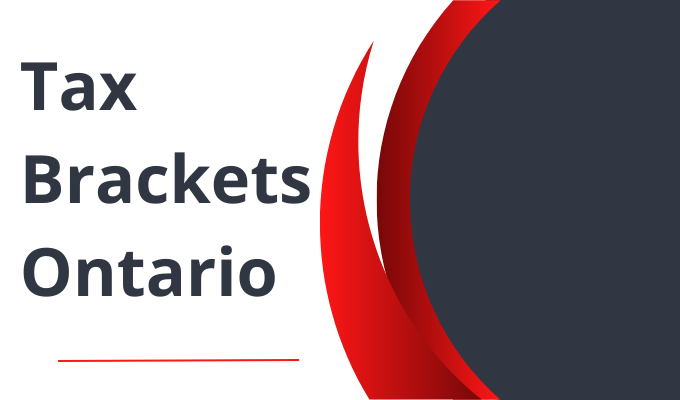You must read this post and get detailed information on Tax Brackets Ontario: What Are Different Taxes in Ontario and What are the Tax Rates?
Tax Brackets Ontario
In Ontario, income tax is calculated using your taxable income, which is your total gross income from all sources less any allowed deductions. The province has a progressive tax system, meaning that a person’s tax rate rises as their income does.
Your income will determine which of the five federal tax rates and the five Ontario tax brackets apply to you. The rate of taxation varies depending on the tax band. The concept behind the scheme is termed progressive tax rates. Accordingly, only the portion of your income that is in the higher tax bracket is subject to the higher rate of taxation if your income rises and you move into a new tax bracket.
|
Important Links |
We suggest reading this post, if you are in Ontario and wish to know about Tax Brackets Ontario, and other taxes applicable in the province.
New Tax Brackets Ontario for 2024
In 2024, the indexation factor of 1.045 (4.5% increase) will raise the Ontario tax brackets and personal tax credit amounts; the $150,000 and $220,000 bracket levels, however, will not be adjusted for inflation.

| Taxable Income 2024 | Income Tax Rate 2024 |
| Till 51,446 | 5.05% |
| Above $51,446 till $102,894 | 9.15% |
| Above $102,894 till $150,000 | 11.16% |
| Above $150,000 till $220,000 | 12.16% |
| Above $220,000 | 13.16% |
Information from the Canada Revenue Agency has verified the indexation factors, tax brackets, and tax rates for 2024. Taxes are usually due on an accrued basis throughout the year. Most businesses take off a certain amount of taxes from your paychecks and send it on your behalf to the federal government.
Tax Brackets Ontario Overview
| Post Heading | Tax Brackets Ontario |
| Country | Canada |
| Taxes | Income Tax
HST Employer Health Tax Beer and Wine Tax Corporations Tax |
| More Information | Locate Here |
What Are Different Taxes in Ontario and What are the Tax Rates?
IN this section we have provided the details of some of the common taxes levied by the Ontario Government in addition to the personal income tax.
HST: Ontario’s sales tax is called the Harmonized Sales Tax (HST). When the federal goods and services tax (GST) and retail sales tax (RST) were consolidated into the HST in 2010, it became effective. You only need to collect and pay the single Ontario sales tax rate as a result. There are some exceptions to the general products and services’ subjectivity to the HST. The rate of HST is 13%.
Employer Health Tax (EHT): It is a payroll tax that is levied by Ontarion businesses on compensation given to both current and past workers. This compensation includes salaries, wages, bonuses, taxable benefits, stock options, and so on. This levy is intended to help raise money for Ontario’s health care system from the government. Depending on your income, the EHT rate ranges from 0.98% to 1.95%.
Beer and Wine Tax: The price you pay for beer produced by an Ontario microbrewery, beer factory, or brew pub includes both wine and beer taxes. Based on the Consumer Price Index for Ontario during the previous three years, the basic tax rates on beer are modified.
Corporations Tax: Businesses that operate in Ontario through a permanent establishment are often subject to both federal and provincial corporation taxes. In Ontario, corporate taxes range from 12.2% to 50.17%.
|
Important Links |
Estate Administration Tax: In the event that an estate certificate is requested and granted, the estate administration tax is levied based on the estate’s valuation. When applying to the Superior Court of Justice for an estate certificate, the tax is paid as a deposit. 1.5% of the estate’s value is the estate administration tax rate.
Managing your taxes and deadlines may be simpler if you create an online account with the CRA. It will enable you to quickly and simply make payments, manage your tax information, and see how much you owe.
Concluding Words
Credits and deductions are two popular methods of lowering your tax liability and/or increasing your tax return. The sums that lower the amount of tax you pay on your taxable income are known as tax credits. Not all of them are refundable. Tax deductions are the sums of money and expenses deducted from your income to lower your taxable income and so lessen the amount of your income that is subject to taxes.
We think you now have a better idea of what the tax rates in Ontario are and how much they are. You ought to be able to determine whether credits and taxes apply to your company and how to stay out of trouble. Additionally, remember to claim any tax credits or deductions that are available to you.